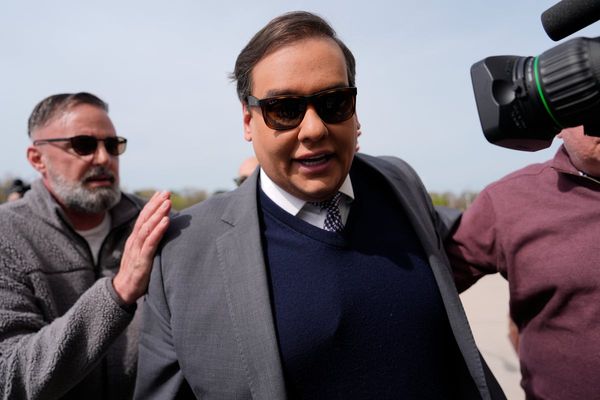Teva stock surged to a five-year high Wednesday after the company beat first-quarter expectations and unveiled promising results from its schizophrenia treatment study.
Teva Pharmaceutical is trying to develop a monthly shot for schizophrenia treatment. Currently, the antipsychotic known as olanzapine — which Teva also sells — is given as a daily pill or dissolvable tablet. But it can be difficult for patients to keep up with that schedule.
In final-phase testing, patients who received monthly doses of Teva's drug for eight weeks showed improvements of 9.71 points to 11.27 points vs. a placebo on a 49-point scale measuring symptoms. Importantly, there were no episodes of post-injection delirium/sedation syndrome, or PDSS. Other efforts to develop long-acting olanzapine have fallen flat due to this side effect.
There's a huge unmet medical need for a long-acting version of olanzapine, Teva Chief Executive Richard Francis told Investor's Business Daily.
"If you look at the schizophrenia market, the largest molecule that's used in the oral form is olanzapine to treat moderate-to-severe (schizophrenia)," he said. "But there's no effective long-acting (drug). There's a need for a long-acting drug in schizophrenia because it improves compliance and adherence."
On the stock market today, Teva stock surged 12.8% to 15.74. The move put Teva stock at its highest point since early 2019. Shares recently retook their 50-day line, MarketSurge analysis shows.
The Next Big Driver For Teva Stock?
Evercore ISI analyst Umer Raffat compared Teva's test results to Eli Lilly's efforts to develop a long-acting version of the same drug. In Phase 3 testing, patients who took Lilly's long-acting olanzapine had 14-point to 17.8-point improvements on the same scale of symptoms.
Though more effective on its face, Lilly's drug also led to events of PDSS. But Teva's drug appears safer.
"We are now about 3,000 injections-plus into Teva's long-acting olanzapine Phase 3 (study) — and no PDSS events to date," Raffat said in a report. "Recall, this was the safety issue that permanently impaired the commercial profile of Lilly's attempt at making long-acting injectable olanzapine."
He says the long-acting version of olanzapine could be a $1 billion product for Teva. Teva's presentation shows olanzapine accounts for 19% of the U.S. market for oral schizophrenia drugs. There are only four long-acting injections available, accounting for 13% of the market.
"Long-acting antipsychotics are very molecule-specific ... and no clear long-acting (version of) olanzapine exists," he said. "Olanzapine is one of the most prescribed antipsychotics and (has) high effectiveness."
Raffat kept his outperform rating on Teva stock.
First Quarter Comes In Mixed
The first quarter also offered a bright spot for Teva stock.
Teva's adjusted earnings lagged expectations by 4 cents a share. But at 48 cents a share, earnings climbed 20% year over year. Teva also kept its profit outlook for the year at $2.20 to $2.50 per share. The midpoint is slightly short of analysts' forecast for $2.39, according to FactSet.
CEO Francis says Teva is investing aggressively in its research and development, which has a short-term impact on profit.
Later this year, Teva expects to unveil interim results of its ulcerative colitis and Crohn's disease study. The drug blocks TL1A, an inflammatory protein, and is being developed with Sanofi. Teva also plans to release the results of an early-stage celiac study in the second half of the year.
Also in the first quarter, sales edged 4% higher to $3.82 billion, beating expectations for $3.74 billion.
The best growth came from Austedo, which treats movement disorders. Sales skyrocketed 67% in the U.S. to $282 million. But that widely missed expectations for $342.1 million. Teva credited the growth with the launch of its extended-release version in May 2023 as well as expanded access for patients and increased investment to meet demand.
Francis says there was a wide range of expectations for Austedo.
"I'm not sure we missed everybody," he said.
Notably, Teva kept its guidance for Austedo to bring in about $1.5 billion in sales this year. The company expects Austedo to generate $2.5 billion in revenue by 2027, according to the first-quarter presentation.
Highly Rated Pharma Stock
Meanwhile, sales of its generic drugs rose more than 6% globally to $2.29 billion. And revenue from migraine prevention drug Ajovy surged almost 20% to $113 million.
Teva also affirmed its full-year view for $15.7 billion to $16.3 billion in sales. The midpoint of the sales guidance is above analysts' call for $15.8 billion.
Evercore ISI's Raffat kept his outperform rating on Teva stock.
With "two major clinical readouts this fall on innovative assets, it's a very different story than a few years ago," he said.
Francis, the CEO, agrees. Teva has always had potential, and it has a history of developing important drugs like Copaxone for multiple sclerosis. Copaxone is now facing generic rivals, however, and sales have fallen markedly. In the first quarter, Copaxone sales tumbled 33% to $99 million.
"When I came here, I saw some of the potential Teva had from a limited point of view. I just don't think it had been invested in and focused on enough," he said. "We are certainly world class in generics and next we're going to be world class in CNS and immunology. I think people are slowly starting to realize that."
Teva stock has a nearly perfect Composite Rating of 98. This means shares rank in the top 2% of all stocks in terms of fundamental and technical measures. Shares also have an IBD Digital Relative Strength Rating of 91, which measures 12-month performance on a 1-99 scale.
Follow Allison Gatlin on X, the platform formerly known as Twitter, at @IBD_AGatlin.







